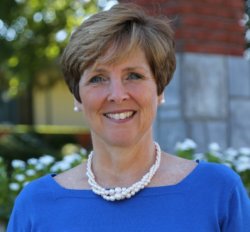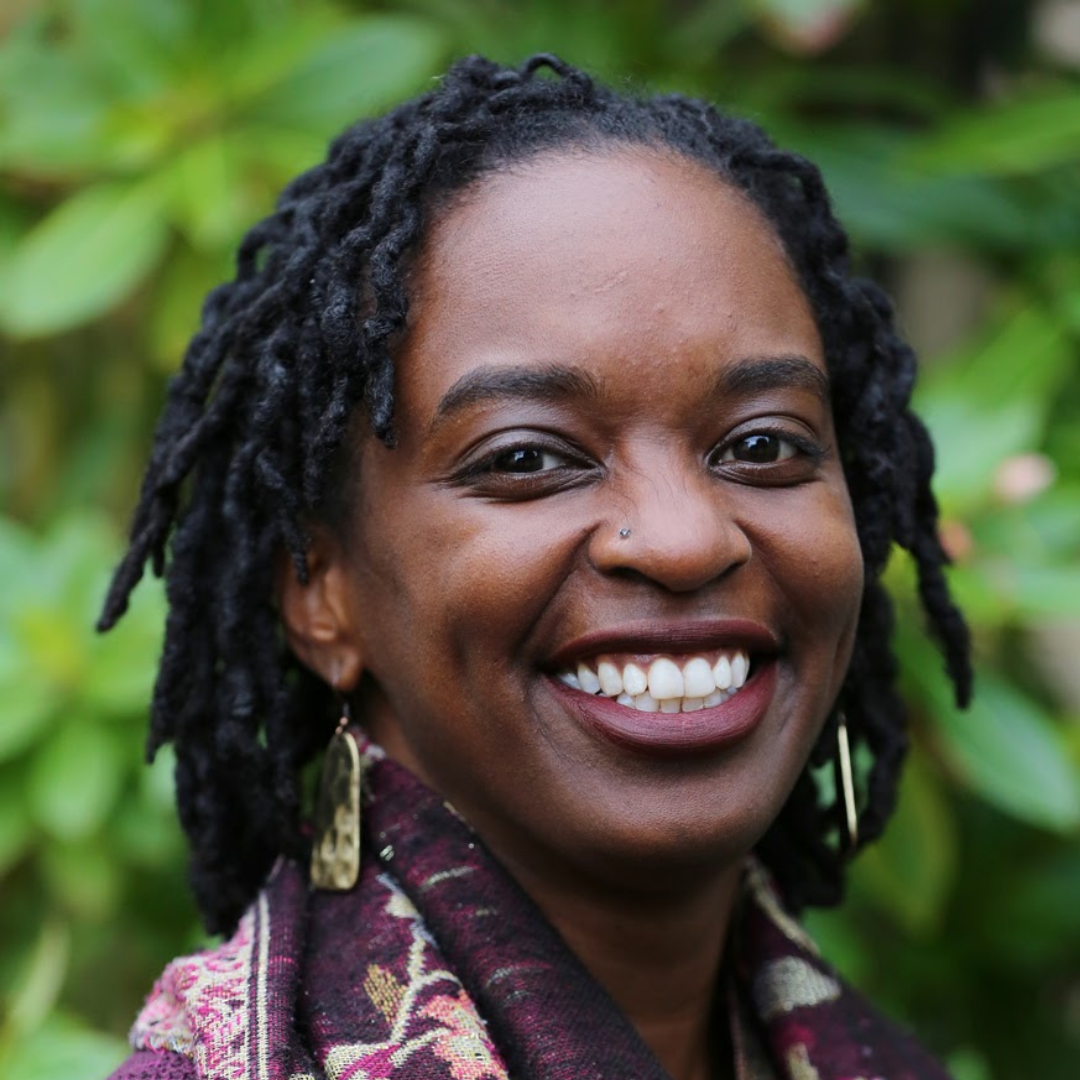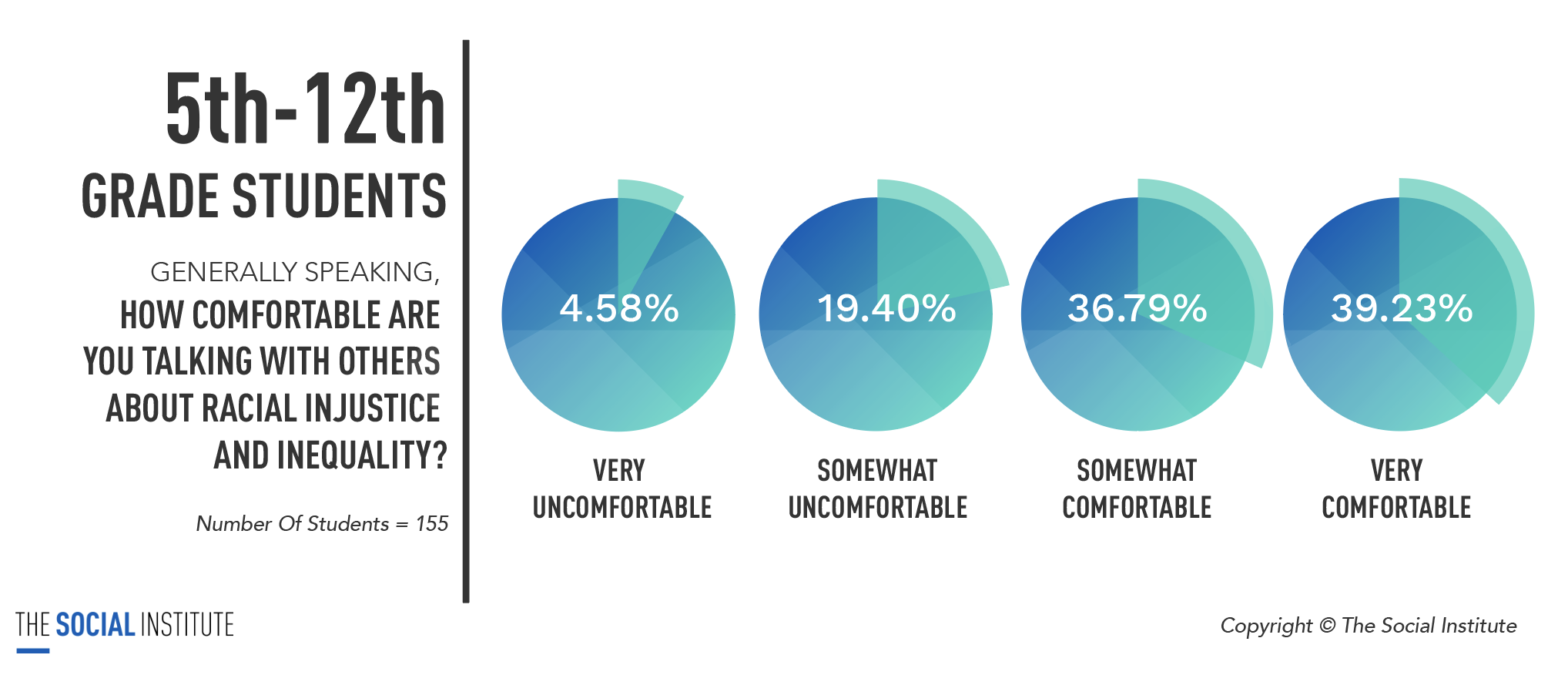Social Media, Social Unrest and COVID: What educators learned about student experiences this fall
By: Micah Adams, Head of Content at The Social Institute
“Our classrooms are an extension of society. It’s not a bubble. Everything happening out there is coming into our classrooms.” – Tamisha Williams, Director of Equity & Community Initiatives, The Potomac School
Long before COVID-19, the need for social-emotional learning (SEL) was trending up and to the right. A 2018 national survey of K-8 principals revealed their top concern to be the rising number of students with social-emotional problems and mental health needs. In 2008, it didn’t even rank among the top 10.
When the pandemic took hold, and social unrest surged in 2020, an enormous wave of uncertainty hit school communities. Adults rushed to reconfigure routines, jump start remote learning, and desperately try to create normalcy heading into a school year unlike any other. What did students do? They took to social media.
In August, The Social Institute brought together thought leaders, senior administrators, and students to discuss how COVID and social unrest created a perfect storm of student social-emotional challenges that played out publicly on social media.
The impact of COVID on “tying the head and the heart”
Learning extends far beyond SAT scores and grades on a report card. That’s a growing sentiment shared by senior administrators and classroom educators from all over the country and accelerated by COVID-19.
Students, parents, and teachers are facing never-before-seen challenges without much of a pre-existing playbook. Remote learning, social distancing in the classroom, heavier reliance on technology, strict standards on facemasks, new protocols for walking hallways, overhauled lesson plans, and canceled extracurricular activities represent just a small fraction of the seemingly endless list of adjustments.
 | “I’ve heard more thank yous than I’ve ever gotten at the start of this school year.” |
| Doreen Kelly Head of School Ravenscroft, NC |
Doreen Kelly, Head of School at Ravenscroft in Raleigh, NC, acknowledges the essential need for SEL to meet this moment. “We’re adjusting our expectations and leading with our humanity. I want people to arrive and leave [school] with their full humanity intact.”
“We know the importance of tying the head and the heart of our work… Part of our mission is to prepare students for a complex and interdependent world. So what does that look like? For us, it took the form of leadership development and moving away from the hierarchy of positional leadership. The key question: what would it mean for every student to develop competencies that would lead to an empathetic leader as opposed to a positional leader?”
Not only are students experiencing higher levels of stress, but they’re also spending even more time isolated and on devices, the result of social distancing. The Social Institute’s positive approach to social media and technology education combined with its comprehensive and CASEL-aligned SEL curriculum offers the chance for school communities to address their students’ underlying social and emotional health while also embracing technology during a period marked by soaring screen times and social media use.
DEI against the backdrop of COVID and social [media] unrest
Practice doesn’t need to make perfect.
But practice can remove the considerable barriers standing in the way of essential conversations. That’s the perspective of Tamisha Williams, Director of Equity & Community Initiatives at The Potomac School. She addressed many of the challenges educators face when wading into diversity, equity, and inclusion. For Williams, the onus is on teachers to start with themselves.
 | “Before we are asking our students to do any level of work, that we have done it for ourselves first. Suppose we ask students to be in intimate conversations with other students about topics that we feel uncomfortable having. How have we done that work ourselves to ensure that we truly know what it feels like for them in those spaces.” |
| Tamisha Williams Director of Equity and Community Initiatives The Potomac School, VA |
Against the backdrop of COVID-19, students and adults alike engage in more regular conversations about race brought forth by a wave of high-profile acts of social injustice, which have sparked ongoing nationwide protests.
Students, already spending on average nine hours a day consuming media even before COVID, are constantly inundated on social media with powerful headlines, images, and videos depicting racially-charged conflict and commentary. That, in turn, drives more interest in topics, that while always present, haven’t necessarily stood front and center as part of our collective consciousness.
Take, for example, the Google search results for “systemic racism.” From May 1 through October 1, Google trends show 14 times more interest than over that same period in 2019. Eventually, online conversation spills from social feeds into classrooms where students are suddenly asking questions and searching for answers that extend beyond the traditional syllabus.
Perhaps most promising? Students want to explore these topics.

When The Social Institute released its #WinAtSocial LIVE lesson at the end of the spring semester following the nationwide reaction to the death of George Floyd, we asked students how comfortable they are talking with others about racial injustice and inequality. 75% responded that they were either “somewhat comfortable” or “very comfortable.” Only 5% said, “very uncomfortable.”
TSI offers schools a real-time lesson product to engage students in responsible, productive, and age-appropriate conversations about sensitive topics. TSI’s lessons foster important SEL concepts related to appreciating diversity, perspective-taking, communication, and empathy, equipping students with the skills they need to navigate their fast-moving, social world.
“The students are watching.”
Among the many themes shared by senior administrators and educators alike is the importance of grace. Or as Doreen Kelly so eloquently put forth, “the permission to be human.”
The truth is that schools are finding their way through uncharted waters without much of a compass, adjusting the sails and steering rudders amidst a dark, swirling sea of unknown variables. Grace – “the permission to be human” – can itself shine bright as a beacon of hope from which to drop anchor. Through COVID, social unrest, and whatever else 2020 has in store, remembering that now more than ever, perfection isn’t the goal, nor the expectation.
During The Social Institute’s summit in August, renowned education consultant Dr. Susan Perry put forth a powerful reminder. “The students are watching, and they are listening. So if they’re hearing negativity from us all the time, we have the opportunity to reframe it and position it positively both in our personal relationships and on social media. That helps students understand that we are going to get through this!”
Even as educational content and delivery evolve, students continue to experience an essential truth: their social and emotional health can either lift them up to personal and academic achievements or bring them down in potentially dangerous ways. Students will have a harder time learning if they aren’t healthy. Amid challenging national conversations, stressed parents and caregivers, and schools yearning for better solutions, it’s often the students who have the best insights. Hear more student voices by signing up for The Social Institute’s newsletter or browsing our online resources.
About The Social Institute
The Social Institute partners with schools nationwide to empower students, families, and educators to positively navigate social-emotional health, social media, and technology. Schools access our student-respected, turnkey curriculum through WinAtSocial.com, an interactive, gamified learning platform. With solutions for students, parents, and educators, we offer a systemic and comprehensive SEL program through a unique and positive approach. We are proud to serve public and independent partners such as Ravenscroft School, Woodward Academy, Oldfields School, All Saints Episcopal School, Lake Forest School District, Boston Public Schools, and more. For more information on how to empower your students to make high-character decisions online and off, please contact us.
